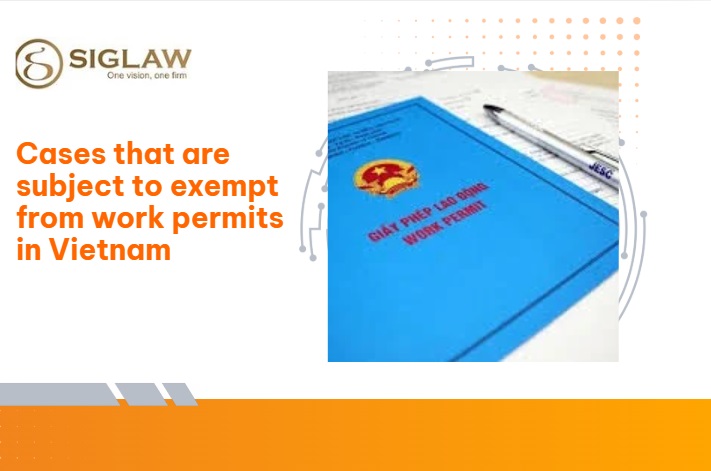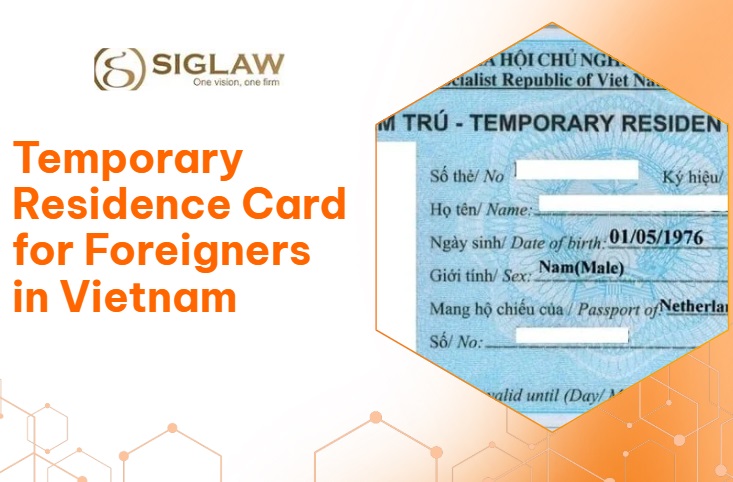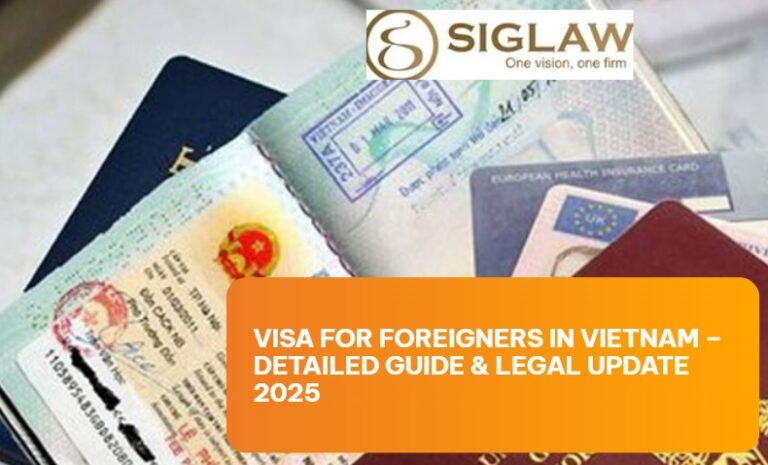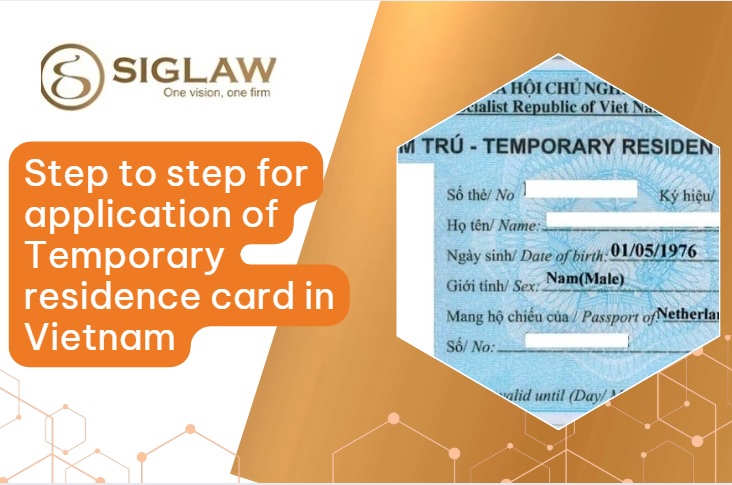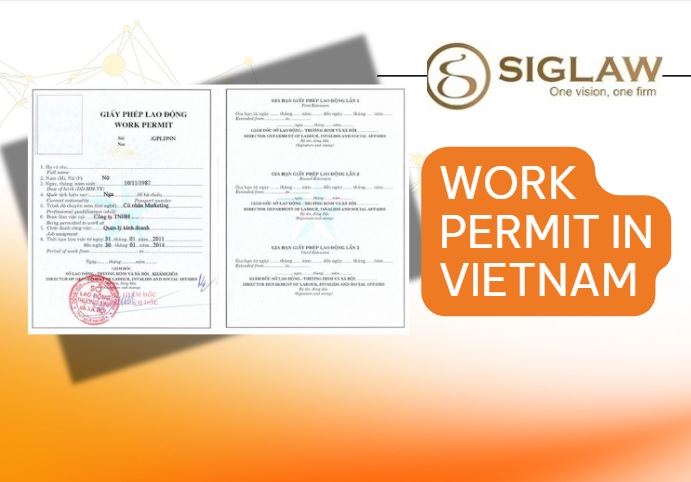Methods of Chinese investment into Vietnam
For decades, Vietnam has been considered a promising destination for Chinese investors due to its geographical advantages, abundant resources, cheap labor, and other benefits. In the first half of 2023, the number of Chinese investors making investments in Vietnam increased significantly, surpassing those from Japan, Korea, and Singapore. So, what forms of investment using Chinese capital can Chinese investors make in Vietnam? To learn more, join Siglaw in exploring this article.
A compilation of 5 investment forms in Vietnam using Chinese capital.
Investing to establish a business entity with Chinese capital in Vietnam
Based on the Investment Law of 2020, a business entity with Chinese capital in Vietnam can be understood as a business entity (including joint stock companies, limited liability companies with one or more members, partnerships, private enterprises, cooperatives, and unions of cooperatives) having a Chinese investor as a member or shareholder.
To invest in Vietnam with Chinese capital through the form of establishing a business entity in Vietnam, Chinese investors must meet the conditions stipulated in the Investment Law of 2020, including:
- Meeting market access conditions for foreign investors: Accordingly, if a Chinese investor’s business line is not on the list of restricted sectors, they will be subject to the same market access conditions as domestic investors. If the investor’s business line is on the restricted list, they must meet the following conditions: investment form, charter capital ownership ratio, investor’s capacity, and other conditions as prescribed by law.
- Meeting national security and defense requirements
- Complying with the Land Law regarding land use conditions and conditions for land use rights in islands, border communes, wards, towns, and coastal communes, wards, and towns.
After confirming that they have met all investment conditions stipulated in Vietnam’s investment law, Chinese investors wishing to invest in Vietnam must go through a process of establishing a business entity that includes the following steps:
Step 1: Apply for an investment decision;
Step 2: Apply for an Investment Registration Certificate (IRC);
Step 3: Apply for an Enterprise Registration Certificate (ERC).
Contributing capital, purchasing shares, or contributing capital to a business entity in Vietnam
According to current investment law, Chinese investors have the right to contribute capital, purchase shares, or contribute capital to Vietnamese enterprises using Chinese capital.
The first step for Chinese investors to invest in Vietnam through capital contribution, share purchase, or capital contribution to a business entity is to determine whether they meet the investment conditions stipulated in Vietnamese law. The investment conditions for Chinese investors in this form of investment are the same as those for establishing a business entity in Vietnam as described in section 1 of this article.
If a Chinese investor contributes capital, purchases shares, or acquires a capital contribution of less than 50% in a Vietnamese enterprise and operates in a business line without conditions, the investor only needs to transfer/contribute capital and declare any income tax on the transfer, if applicable. Subsequently, the enterprise will proceed with the registration to update its business registration information according to the prescribed procedures.
If a Chinese investor contributes capital/acquires more than 50% of the charter capital, the following procedures must be carried out: (1) Registering the capital contribution, share purchase, or capital contribution to the Vietnamese enterprise at the Investment Registration Agency; (2) Completing the capital contribution, share purchase, or capital contribution; (3) Completing the procedures to change the business registration information; (4) Applying for an IRC for business lines that require an Investment Registration Certificate.
Investing under a Business Cooperation Contract (BCC)
According to the Investment Law 2020, investing under a Business Cooperation Contract (BCC) by a Chinese investor in Vietnam can be understood as a Chinese investor entering into a business cooperation contract with a Vietnamese enterprise to share profits and products without the need to establish a legal entity.
The content of the Business Cooperation Contract (BCC) between the Chinese investor and the Vietnamese enterprise will include:
- Names, addresses, and legal representatives of the Chinese investor and the Vietnamese enterprise.
- The address where the investment project is implemented or the transaction address.
- Contributions of each party to the contract and the distribution of investment results among the parties.
- Objectives and scope of activities.
- Timeframe and progress of contract implementation.
- Terms and conditions for amending, assigning, and terminating the contract.
- Dispute resolution procedures.
- Liability for breach of contract.
After both parties have agreed to all terms of the contract and have fully signed the BCC, the enterprise needs to carry out the procedures to apply for an Investment Registration Certificate for the investment project under the BCC.
Thực hiện dự án đầu tư
Nhà đầu tư muốn thực hiện đầu tư vào Việt Nam bằng vốn Trung Quốc cũng có thể thực hiện đầu tư thông qua hình thức “Thực hiện dự án đầu tư”
Theo quy định tại Mục 2 và Mục 3 Chương IV Luật Đầu tư năm 2020, để thực hiện dự án đầu tư tại Việt Nam, nhà đầu tư cần thực hiện các bước sau:
Bước 1: Lựa chọn nhà đầu tư để thực hiện dự án đầu tư thông qua các hình thức như: (1) Đấu thầu lựa chọn nhà đầu tư theo quy định của pháp luật đấu thầu; (2) Đấu giá quyền sử dụng đất theo quy định của pháp luật đất đai; (3) Chấp thuận nhà đầu tư trong trường hợp được quy định tại khoản 3 và 4 Điều 29 Luật Đầu tư năm 2020.
Bước 2: Xác định chủ thể có thẩm quyền chấp thuận chủ trương đầu tư (Thủ tướng Chính phủ hoặc Quốc hội có thẩm quyền chấp thuận chủ trương đầu tư)
Bước 3: Chuẩn bị hồ sơ đề nghị chấp thuận chủ trương đầu tư. Hồ sơ được quy định tại Điều 33 Luật Đầu tư năm 2020
Bước 4: Đợi quyết định chấp thuận chủ trương đầu tư
Bước 5: Triển khai dự án đầu tư sau khi được chấp thuận
Đầu tư theo hình thức hợp đồng PPP
Nhà đầu tư Trung Quốc cũng có thể thực hiện đầu tư vào Việt Nam thông qua hình thức ký kết hợp đồng PPP.
Hợp đồng PPP (Public – Private – Partnership) hay còn gọi là hợp đồng đối tác công tư là loại hợp đồng được ký kết giữa cơ quan nhà nước có thẩm quyền và nhà đầu tư tư nhân (trong nước hoặc nước ngoài) nhằm quản lý, thực hiện, vận hành các dự án phát triển về cơ sở hạ tầng và cung cấp các dịch vụ công.
Hiện nay, Chính phủ Việt Nam rất khuyến khích nhà đầu tư nước ngoài, trong đó có nhà đầu tư Trung Quốc thực hiện đầu tư thông qua hình thức hợp đồng PP bởi hình thức này mang lại lợi ích cho cả nhà nước và nhà đầu tư, thúc đẩy sự phát triển về cơ sở hạ tầng tại Việt Nam, đồng thời tiếp thu các công nghệ xây dựng và công nghệ quản lý mới.
Các nhà đầu tư Trung Quốc có thể thực hiện hợp đồng PPP thông qua các hình thức sau: (1) Hợp đồng xây dựng – chuyển giao (BT); (2) Hợp đồng Xây dựng – Chuyển giao – Kinh Doanh (BTO); (3) Hợp đồng Xây dựng – Kinh doanh – Chuyển giao (BOT); (4) Hợp đồng xây dựng – Chuyển giao – Thuê dịch vụ (BTL); (5) Hợp đồng Xây dựng – Sở hữu – Kinh doanh (BOO); (6) Hợp đồng Xây dựng – Thuê dịch vụ – Chuyển giao (BLT); (7) Hợp đồng Kinh doanh – Quản lý (O&M) và các loại hợp đồng khác theo quyết định của Thủ tướng Chính phủ.
Phone: (+84) 961 366 238
Email:
- vphn@siglaw.com.vn
- vphcm@siglaw.com.vn
Headquarters: No.44/A32-NV13, Gleximco A, Le Trong Tan street, An Khanh, Hoai Duc, Ha Noi, Vietnam.
Southern branch: No.103 – 105 Nguyen Dinh Chieu Str., Xuan Hoa Ward, Ho Chi Minh.
Central branch: VIFC DN – ICT Building Software Park No. 2, Nhu Nguyet Street, Hai Chau Ward, Da Nang City
Facebook: https://www.facebook.com/hangluatSiglaw




